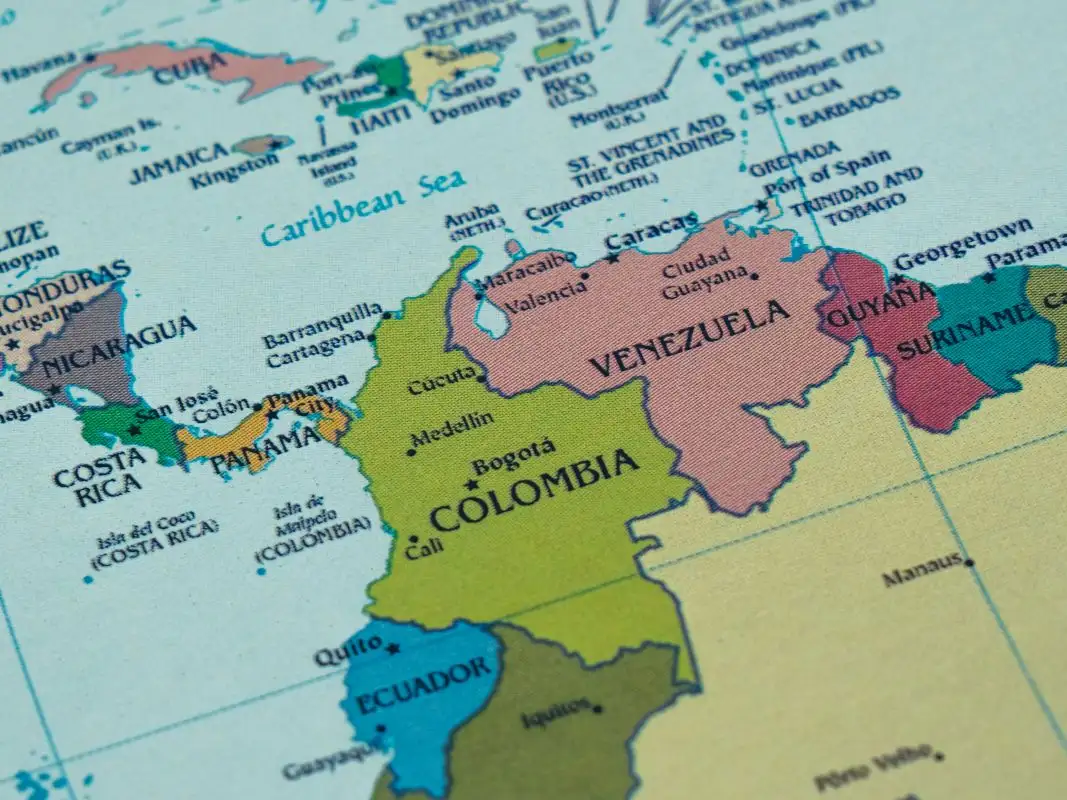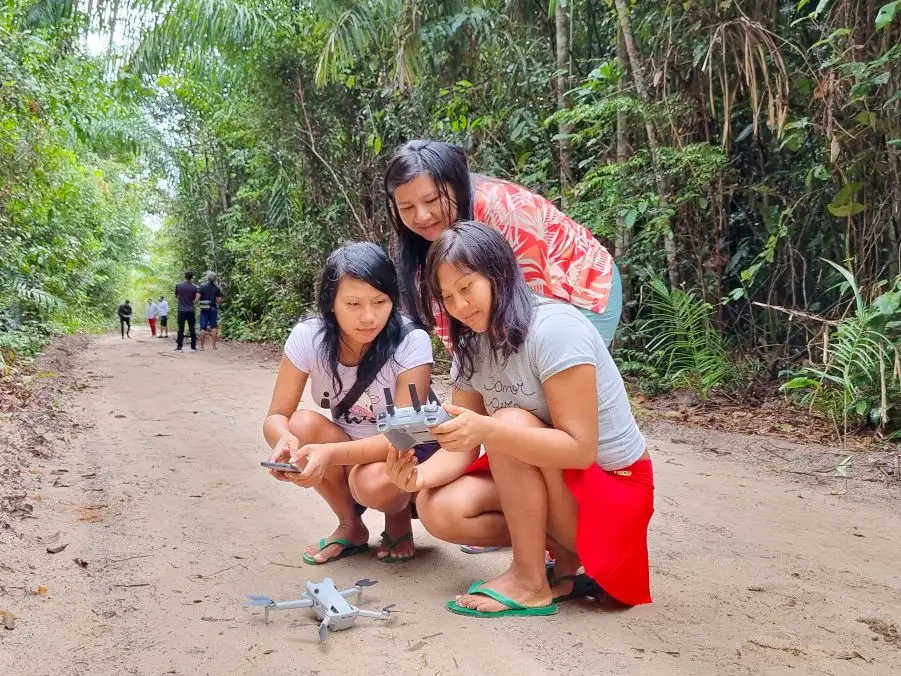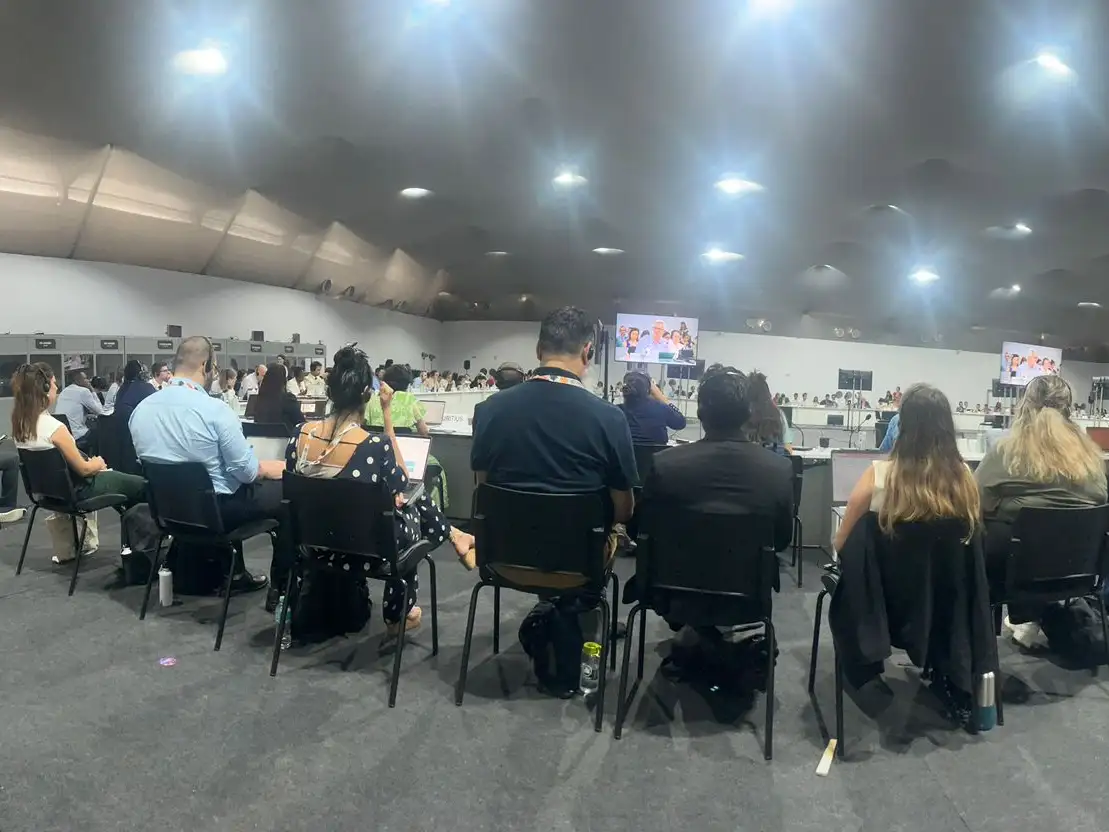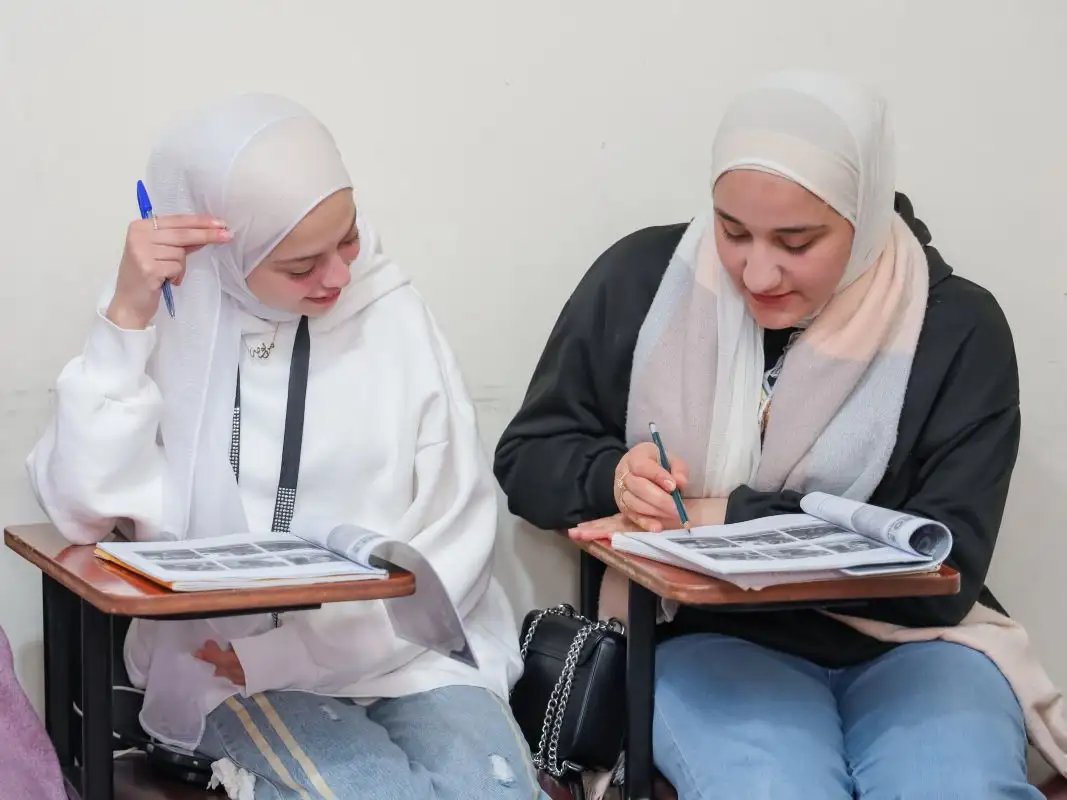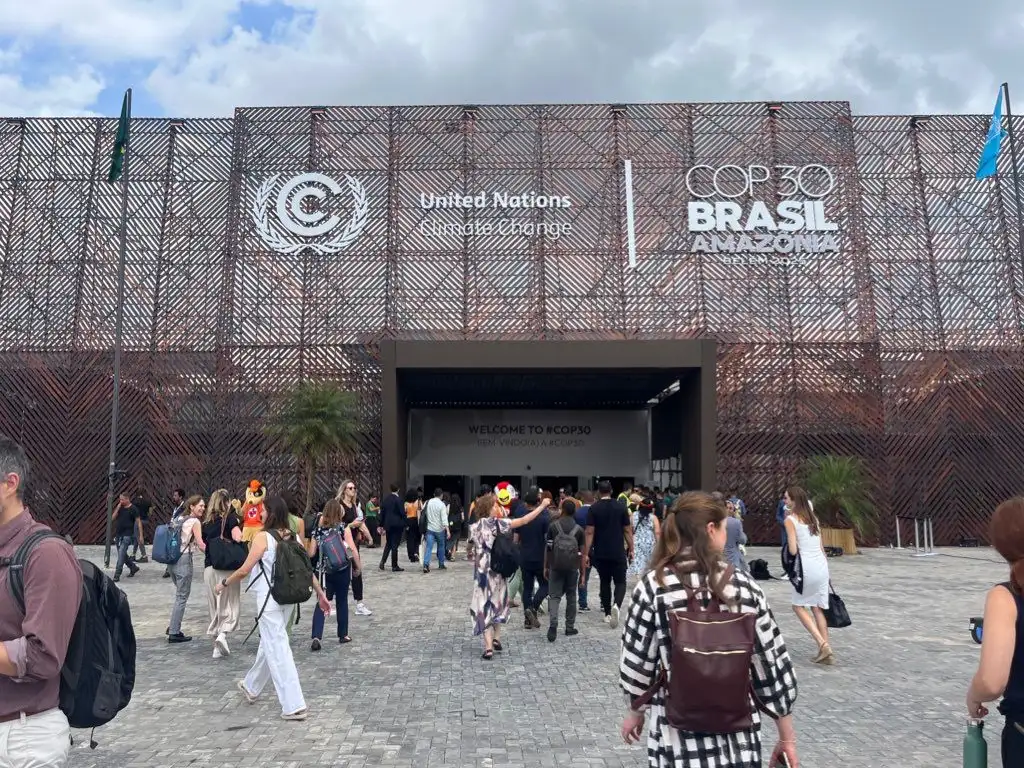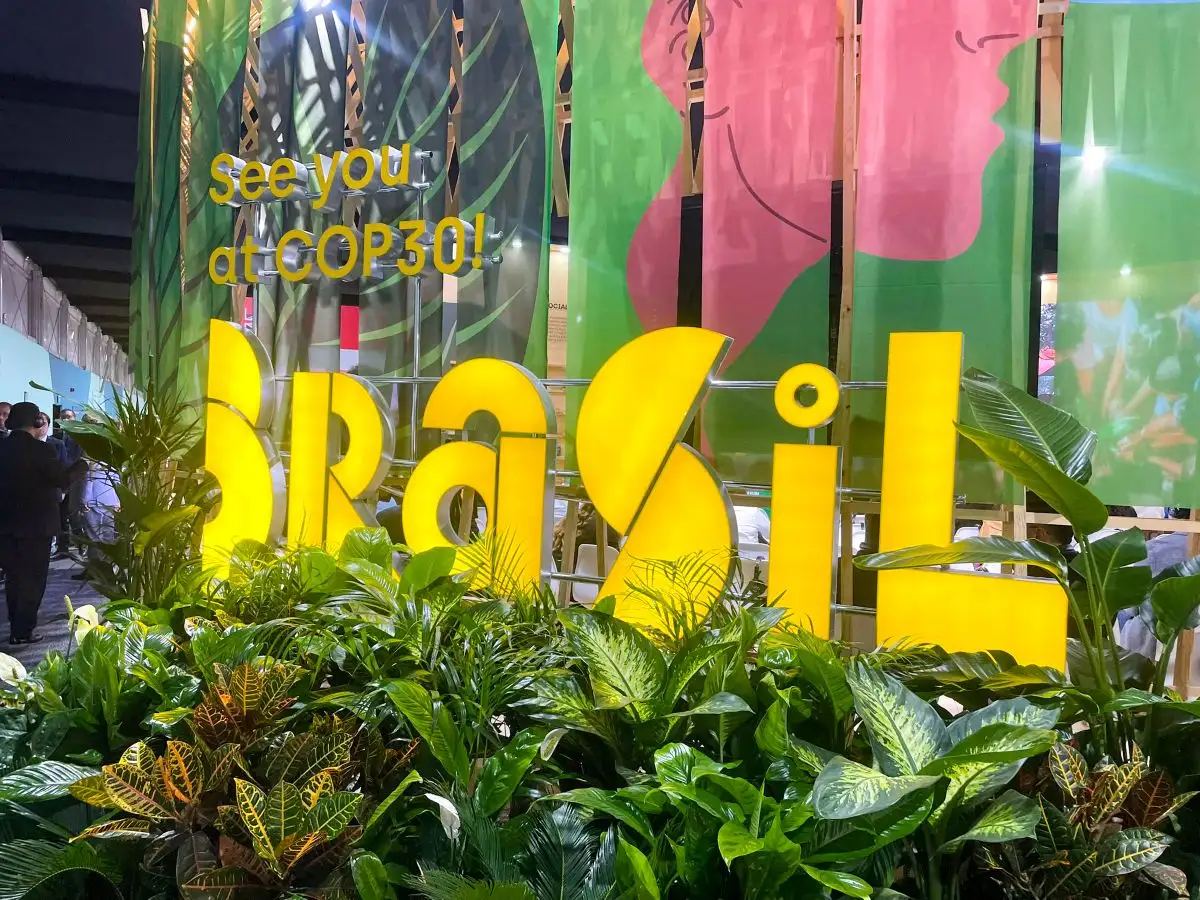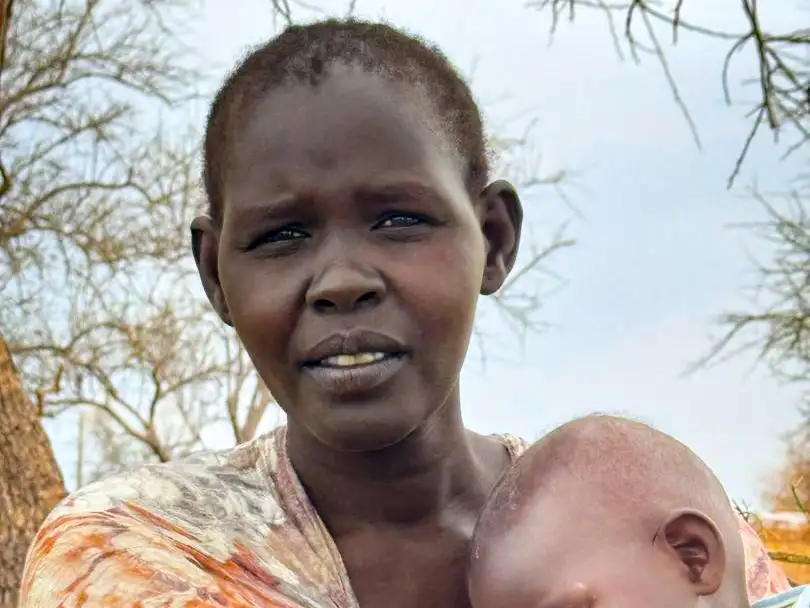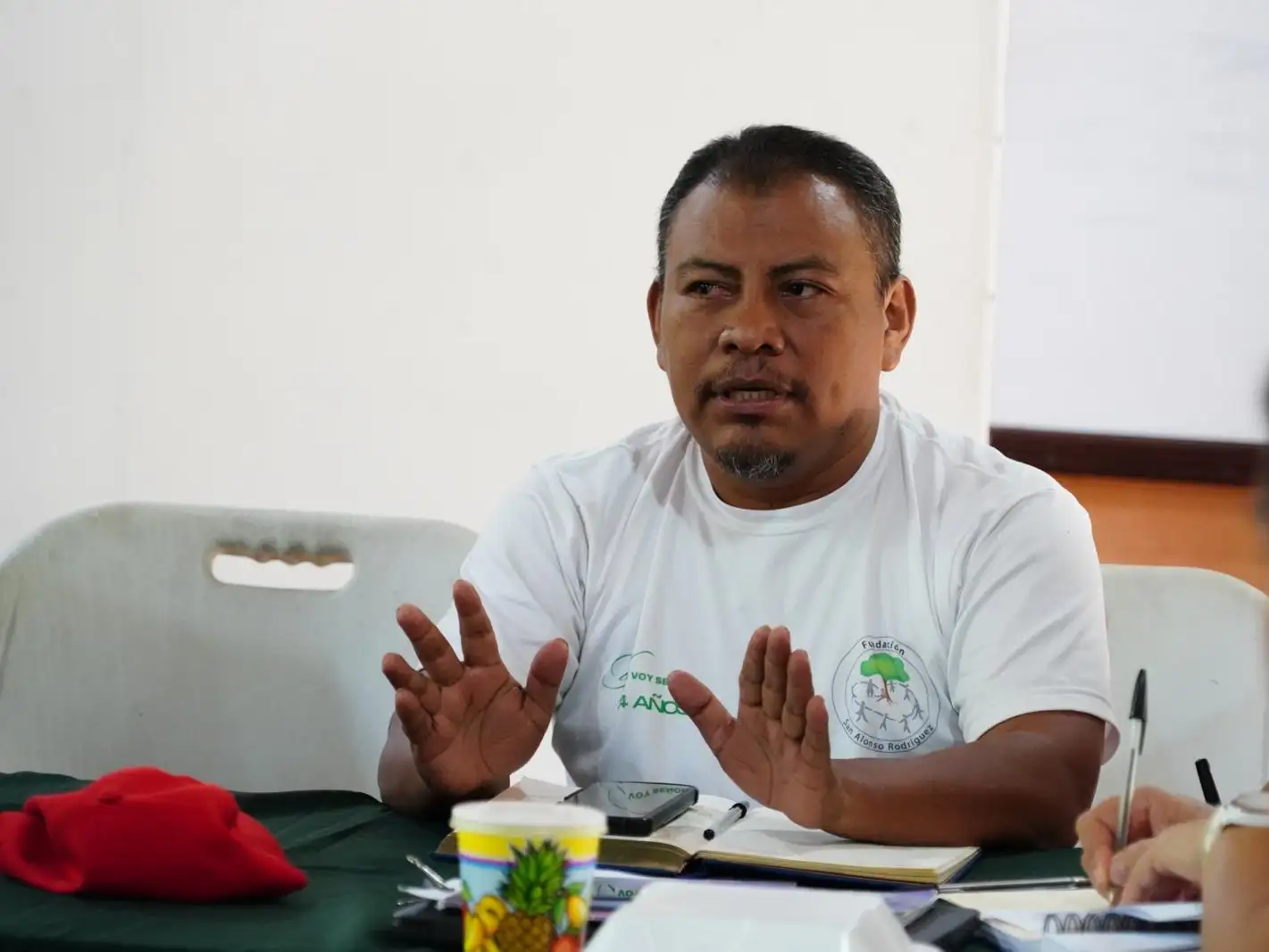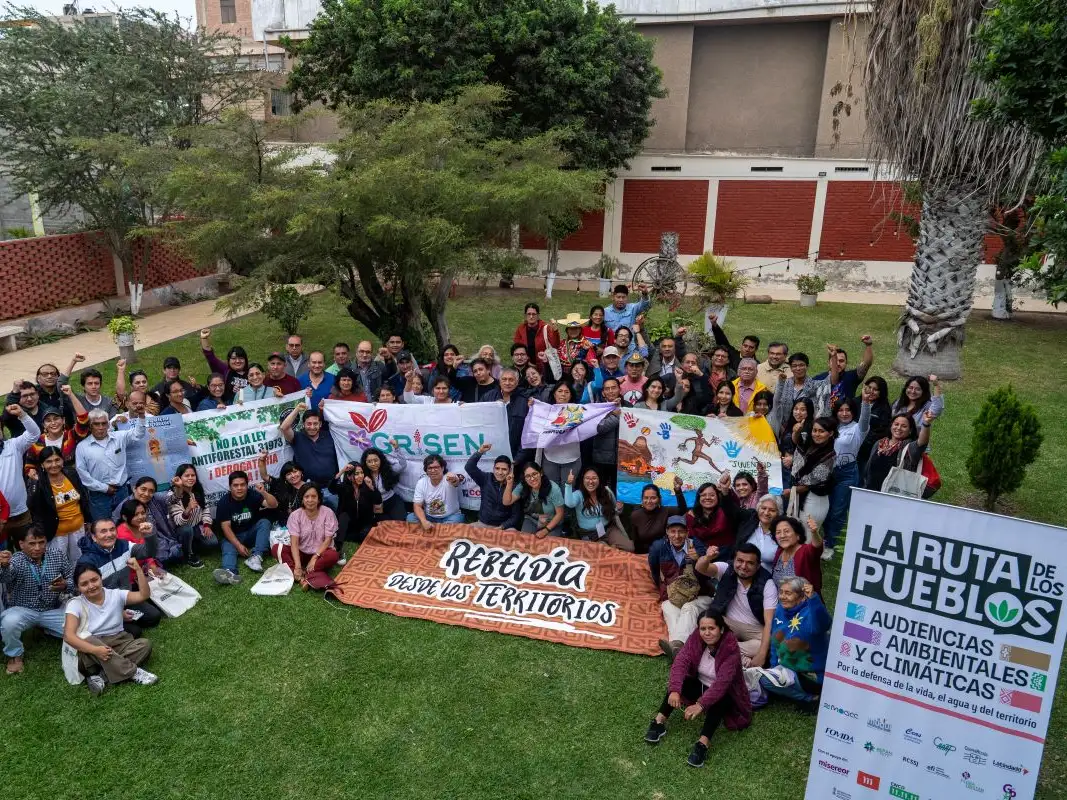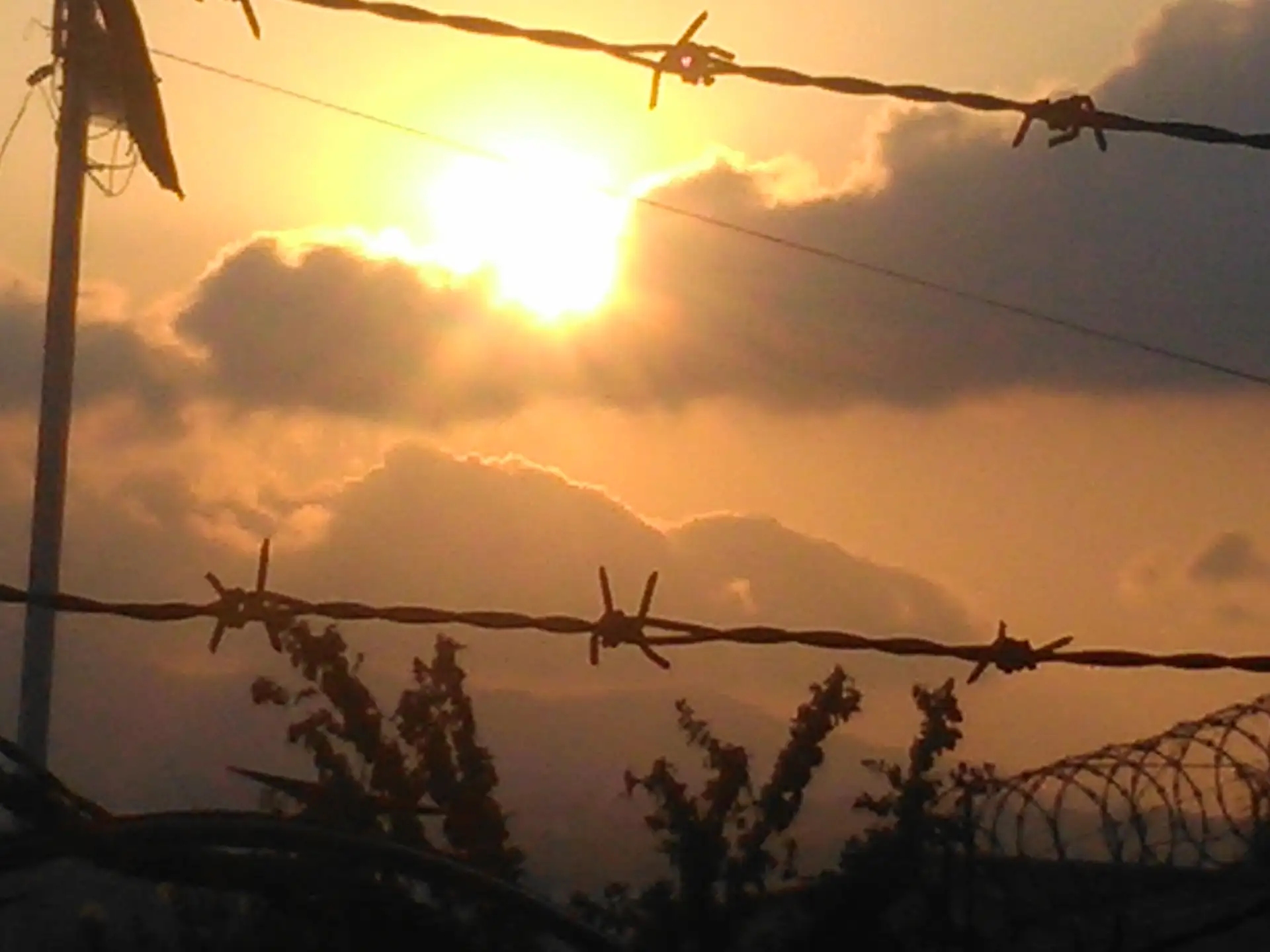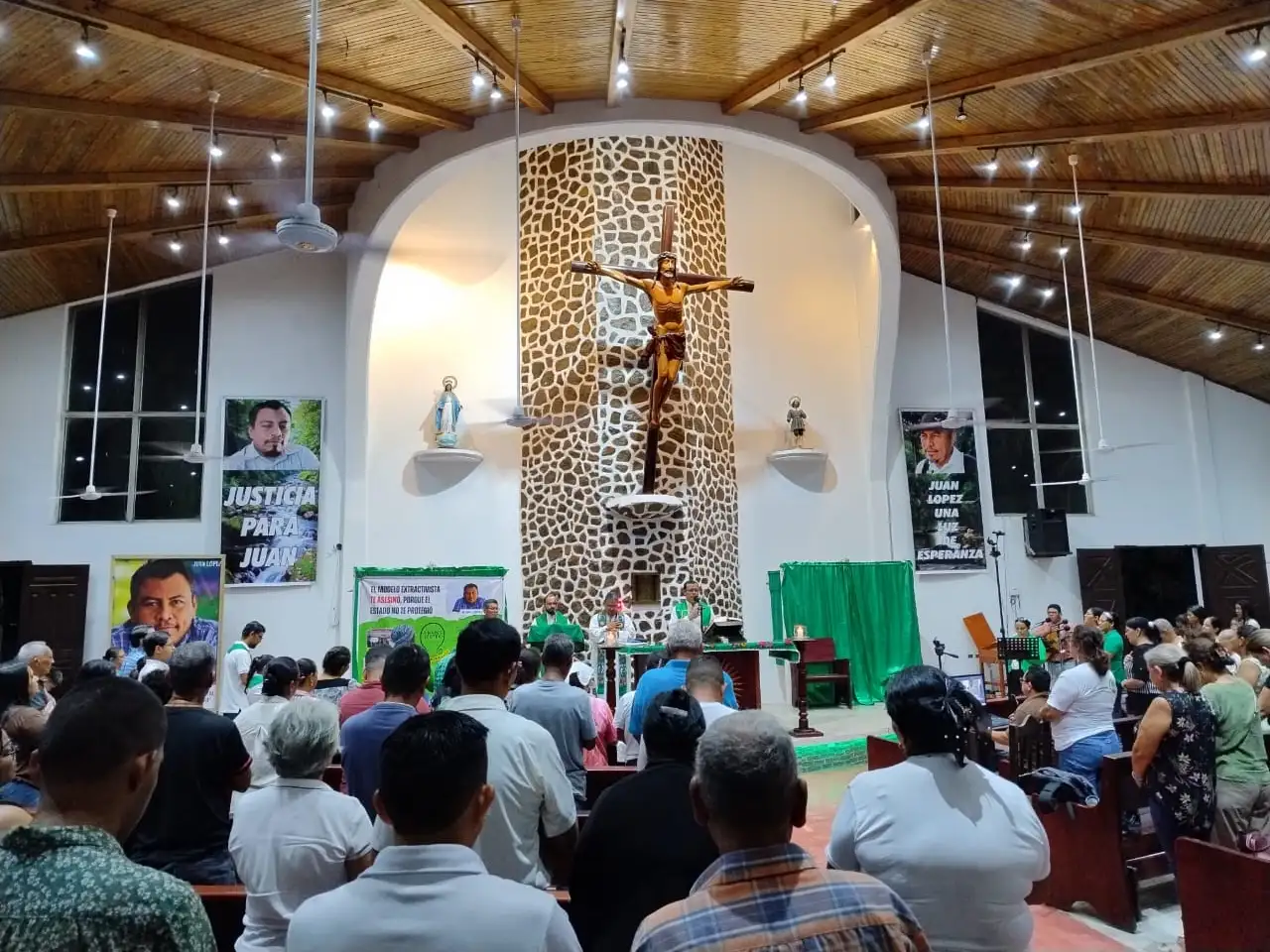

Mass to commemorate the life of two environmental defenders in Honduras, Juan Lopez and Carlos Escaleras, who were killed trying to protect our common home. Photo credit: Radio Progreso.
In Latin America, when people raise their voices to call attention to the environmental damage caused by large-scale industrial projects, they put their lives at risk.
The killing of Juan Lopez
On 14 September 2024, Honduran community leader and activist Juan Lopez was murdered because of his actions to protect the Guapinol river from further contamination by a giant mining project.
The Guapinol river used to be a flowing river with lush trees on either side of its banks surrounded by the green hills of the Carlos Escaleras National Park. Today, its reduced flow has exposed the rocks at the bottom and only small wells along its banks can be used by the community.
Juan and other defenders had fought for over a decade against this project.
Government complicity with the mining companies has allowed the activities to continue despite their location in the Carlos Escaleras Mejía National Park, an area which should be protected.
Since the murder of Juan Lopez, the community of Tocoa has been calling for an investigation accompanied by an international independent body that can guarantee impartiality and due diligence.
Juana Esquivel, a member of the Committee of Nature Goods in Tocoa, said: “It is hard to know that our call for justice for the murder of Juan Lopez has to be done [by the] same institution that punished and repressed his fight, our community and group of community defenders of the Guapinol river.”
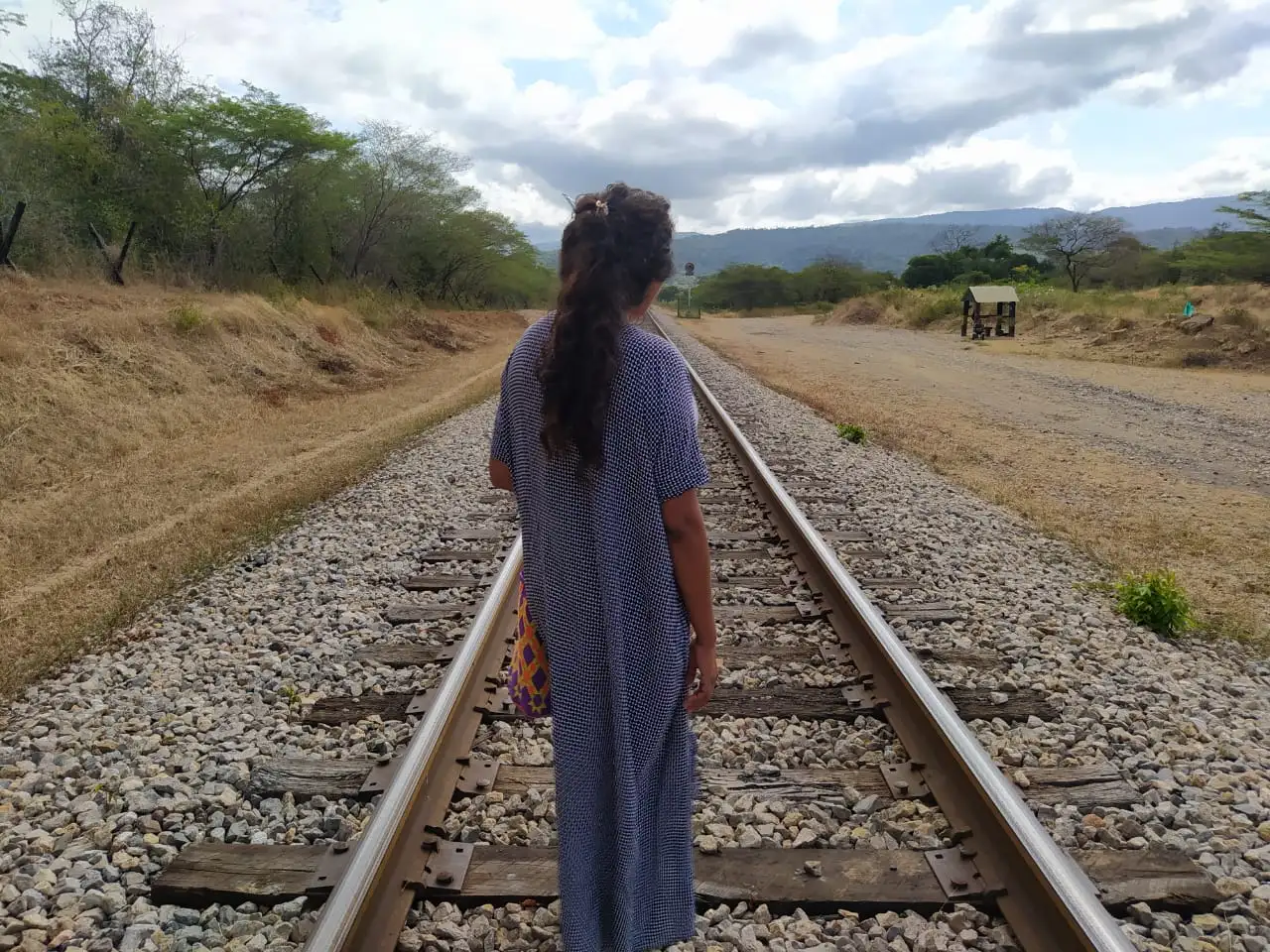

Train tracks where coal is taken 147km from the mine to the port, causing air pollution along the route in La Guajira, Colombia. Photo credit: CINEP
What does it mean to be a human rights and environmental defender?
The United Nations defines 'human rights defenders' as people who work to promote or protect human rights in a peaceful way.
They can address any human rights concerns, including:
arbitrary arrests and detentions
discrimination
social injustice
access to healthcare
negative impacts on the environment.
'Environmental defenders' are individuals or groups who strive to protect human rights related to Our Common Home and the environment.
Environmental defenders are at high risk across the globe. A 2024 report from Global Witness shows that eight of the ten most dangerous countries to be an environmental defender are in Latin America.
The killing of Carlos Escaleras Mejía
Carlos Escaleras was shot in the back by two men on 18 October 1997. His murder took place a month before local elections in which Carlos was a candidate for mayor.
Paz Redondo, CAFOD’s Country Representative for Central America, said: “The death of Carlos Escaleras Mejía in 1997 is an iconic example because justice was only achieved once the case was taken to the Inter-American Court of Human Rights.”
In the mid-1990s Carlos led a campaign against the construction of a palm oil extraction plant near the Guapinol river because the project threatened the livelihoods of several communities in the municipality of Tocoa. One of the wealthiest men in Honduras at the time, Miguel Facussé Barjum, was behind the palm oil project. Ironically, the mining companies that the Guapinol defenders are resisting today are owned by the daughter and son-in-law of Facussé Barjum.
During Carlos Escaleras’ candidacy as Mayor of Tocoa he received many threats. And when he rejected bribes to drop his environmental campaign, two hitmen shot him at his workplace. He died shortly after the attack. The man convicted of Carlos' murder, Lucas García, later accused Facussé Barjum of being involved in the crime, but the judge hearing the case chose not to admit his statement.
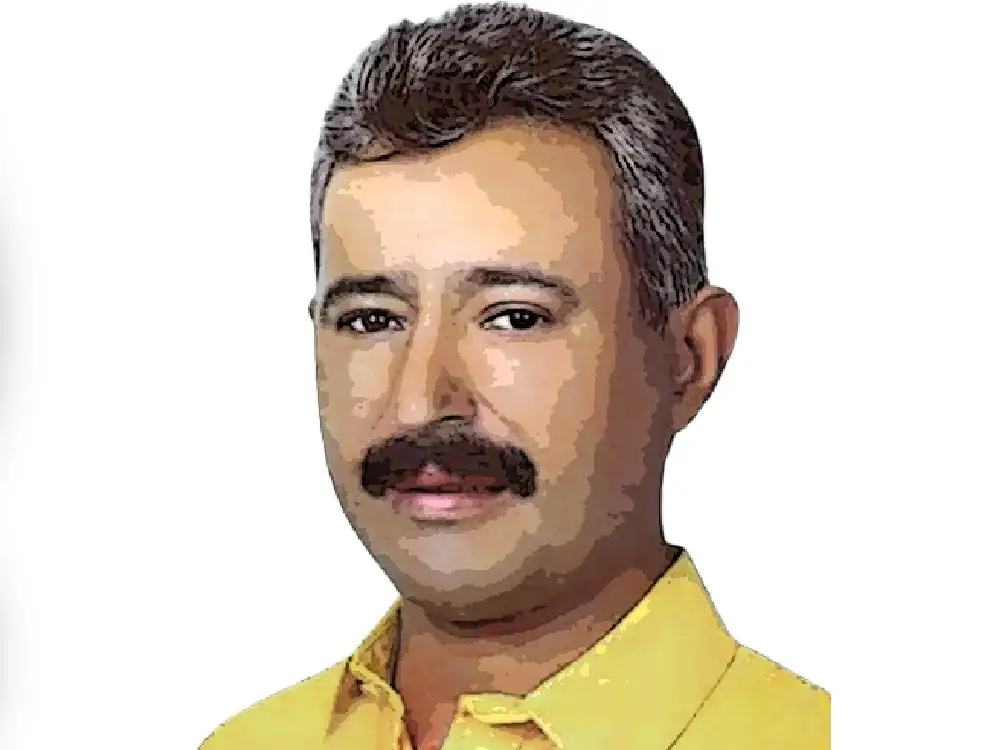

Carlos Escaleras was killed on 18 October 1997. Photo art credit: Radio Progreso
As with many other cases of killings of human rights and environmental defenders during the last decade, Honduran courts failed to prosecute those responsible for the murder of Carlos Escaleras.
The case was taken to the Inter-American Court of Human Rights and in 2018 the court found the Honduran state “responsible for the death of the environment defender Carlos Escaleras Mejía, as well as for the situation of partial impunity concerning his death”.
As part of the of the reparation measures to Carlos’ family, the Honduran state renamed the Montaña de Botaderos National Park to Carlos Escaleras National Park.
The 'Carlos Escaleras National Award' is dedicated to those who defend the right to land and natural resources in Honduras. The recognition seeks to praise and destigmatise the work that environmental defenders do in the country.
The award is promoted by our partner in Honduras, ERIC – Equipo de Reflexión, Investigación y Comunicación (the Reflexion, Investigation and Communication Team). The ceremony is held on 18 October to commemorate the murder of Carlos Escaleras.
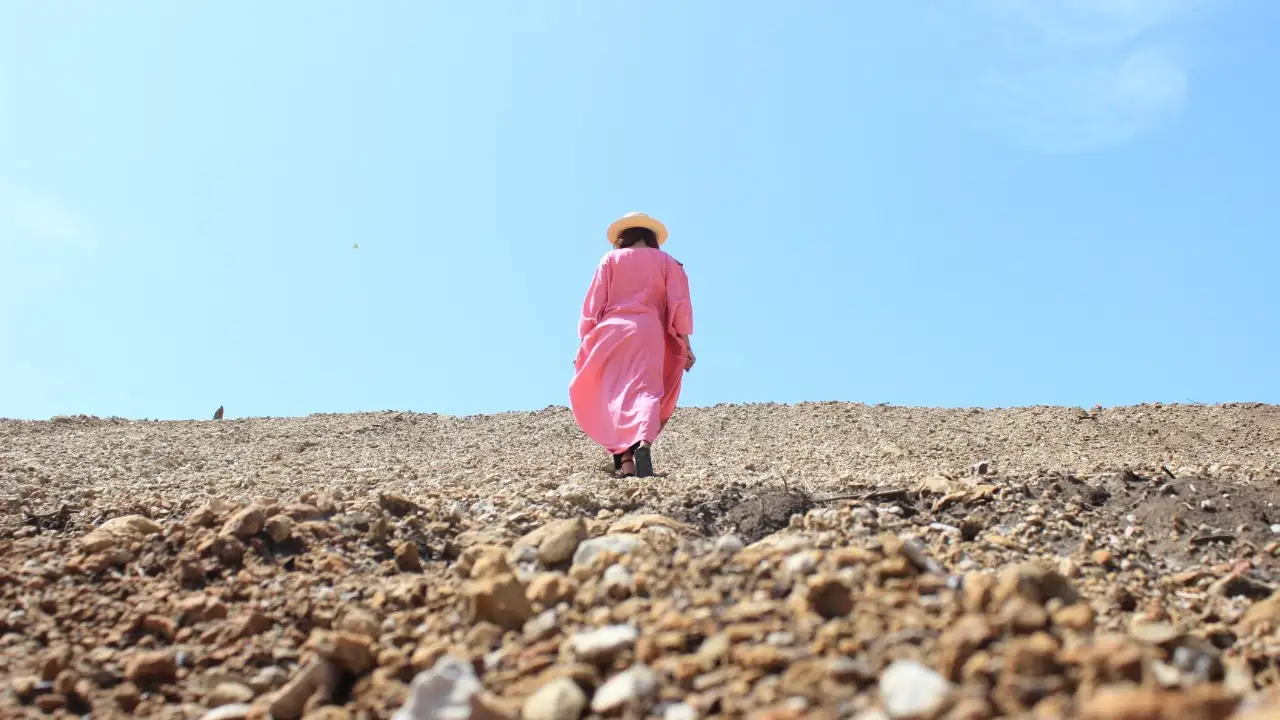

Severe drought in the Sierra Nevada de Santa Marta, Colombia. Photo credit: CINEP
Why are human rights defenders at risk in Latin America?
Latin America and the Caribbean continue to be some of the most dangerous places in the world for human rights defenders.
In Colombia alone, 150 social activists and community leaders were killed between January and November 2023. During last year, 79 out of 196 people who were murdered for their defence of the environment were murdered in Colombia.
Defenders from indigenous and Afro-descendant communities, who have faced historical discrimination and marginalisation since colonial times, face a disproportionate number of human rights violations due to territorial disputes, armed conflicts, and large-scale mining and energy projects.
The murders of human rights defenders around the world seem to follow a pattern in which injustice prevails. Corruption in government means that attacks are not documented, investigated and prosecuted – and the root problem is neither identified nor tackled.
The history of violence against environmental defenders goes back a long time, with corrupt state institutions responding to the economic needs of private companies.
A new hope for the environment?
The communities of Tocoa have defended the Guapinol and San Pedro rivers for decades. Thanks to them, this year the rivers achieved the approval of a legislation (Decree 18-2024) which recovers and protects the core zone of the Carlos Escaleras Mejía National Park.
The law will also prohibit the granting of mining rights in declared protected areas.
One of the main challenges in the implementation of the law is to ensure that the affected communities are able to actively and meaningfully participate in the process of conservation. That is why we’re proud to support the advocacy work of ERIC, who have accompanied the Guapinol community in defence of their rights, seeking justice and a better world for all of us.


